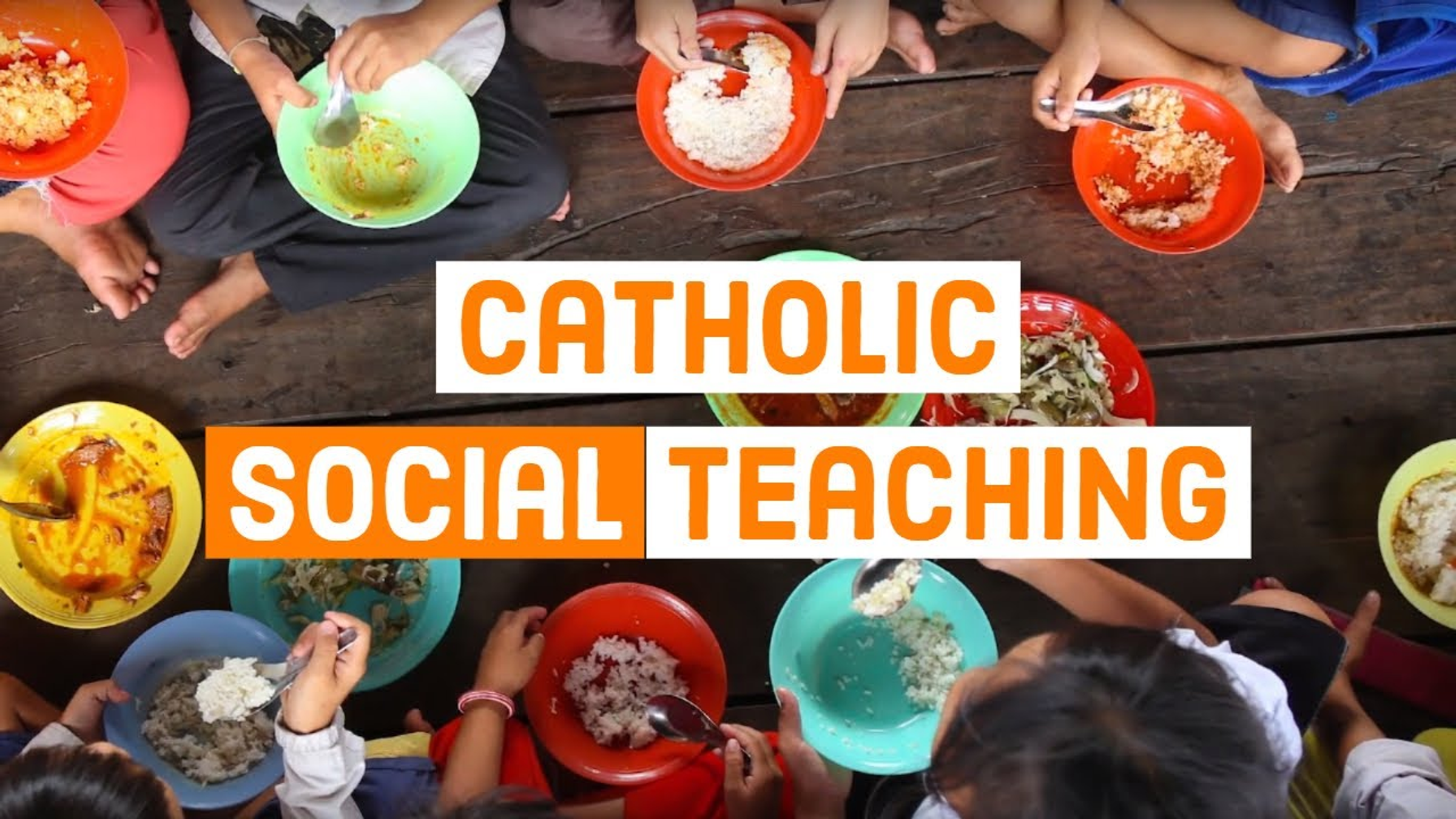Education in Faith

CATHOLIC SOCIAL TEACHINGS
“It is important for the whole Church that the welcome of the poor and the promotion of justice are not entrusted to ‘specialists’, but that they are the focus of attention of all the pastoral work, .........of the normal commitment of all parishes, movements and ecclesial groups.”
Pope Francis, at the Centro Astalli Refugee Centre, Rome, 12 September 2013.
The Catholic Church has a history of social teaching that goes back centuries and provides a compelling challenge for living responsibly and building a just society. Modern Catholic Social Teaching, rooted in Scripture, has evolved over time in response to the challenges of the day.
Each term our school looks at one of the elements of these themes and incorporates it into the unit if work.
The following are several of the key themes that are at the heart of our Catholic social tradition.
Preferential Option for the Poor
We live in an amazing world with enough resources for everyone. Yet, many miss out.
Caring for those who are less well off is everyone’s responsibility. Preferential care should be shown to vulnerable and marginalised people, whose needs and rights are given special attention in God’s eyes.
Dignity of the Human Person
We are made in God’s image. This means we each have a God-given dignity.
The dignity of every person, independent of ethnicity, creed, gender, sexuality, age or ability, is the foundation of Catholic Social Teaching. No human being should have their dignity or freedom compromised. Poverty, hunger, oppression and injustice make it impossible to live a life commensurate with this dignity.
Care for our Common Home
We are responsible for looking after the world we live in.
The earth and all life on it are part of God’s creation. We are called to respect this gift. We are responsible for taking care of the world we live in and for sharing all the wonders and resources the earth gives us. Our changing environment prompts us to stop and think about how we live on our planet. We are called to respond and to adopt new ways of living as Pope Francis highlights in his encyclical, Laudato Si': On the Care for our Common Home.
Subsidiarity and Participation
The role of people in positions of power is to look after the good of all.
All people have the right to participate in decisions that affect their lives. Subsidiarity requires that decisions are made by the people closest and most affected by the issues and concerns of the community.
The Common Good
We can only live life in all its fullness when we are in relationship with others – through community.
The common good is reached when we work together to improve the wellbeing of people in our society and the wider world. The rights of the individual to personal possessions and community resources must be balanced with the needs of the disadvantaged and dispossessed.
Solidarity
We should commit ourselves wholeheartedly to the good of all, to stand in solidarity with our one human family.
Everyone belongs to one human family, regardless of their national, religious, ethnic, economic, political and ideological differences. Everyone has an obligation to promote the rights and development of all peoples across communities, nations, and the world, irrespective of national boundaries.
Margaret Carlei
Leader in Faith
